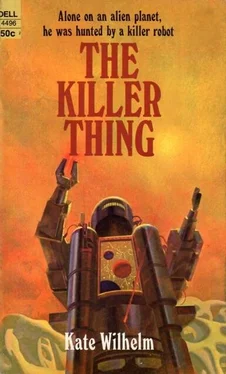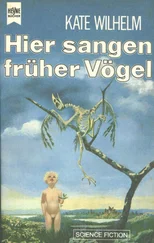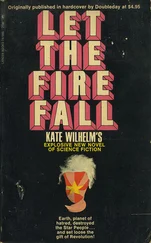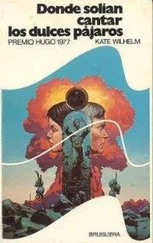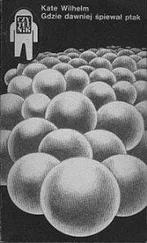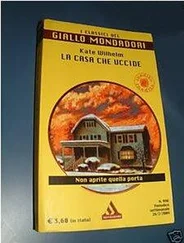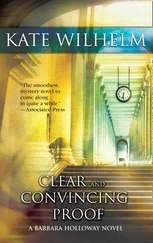You’ve been to Tarbo; you’re a man now. You should marry and conceive a son… Corrine… You’ve been to Tarbo… She knew. Corrine knew. Gene had known… You’ve been to Tarbo…
“Tarbo!” Trace sat upright, and moaned in pain. Tarbo? He repeated it aloud, “Tarbo?” It meant nothing to him. He had dreamed of his mother saying to him, “You’ve been to Tarbo,” but it meant nothing to him then. There was nothing that went with it, only the meaningless words, you’ve been to Tarbo. He listened. The wind was gone, the night completely still. He moved and groaned again. He hadn’t reclined the seat, and he was stiff; his shoulder was agonising. How much had it bled? With stiff fingers he peeled off the suit and he clenched his teeth when the material pulled away from the scraped place on his shoulder. Tears ran down his cheeks and he was unaware of them until the salt touched a scrape on his hollow cheek.
He found a cleanser in the first aid supplies and as thoroughly as he could he cleaned off the skinned area on his shoulder; it was four inches long, two inches wide. Blood oozed from it and he quickly put an adhering bandage over it. Bruises covered most of his body, and there was another cut on his upper leg; he had not been aware of it until he saw it. He cleaned it and bandaged it also. He was reeling with fatigue and fever when he finished, and he took more of the anti-fever capsules and another swallow of water and fell again to the seat. Sand ground into his body; wearily he arose and brushed off the seat, but he couldn’t tell if he had got it clean or not, and finally he fell into the other seat, Duncan’s seat.
Sorry, Duncan, he thought, but you’ll just have to stand, or squat, or take my seat. Dirty seat, blood and sand… no urine, too dry for that… should drink more water. What, Duncan? Yeah, it hurts when I move. Like you said.
S’funny, Trace. Can’t feel anything, but I know it hurts like hell, something knows, like it’s sending the same message again and again and never getting through, not in my head. But I know how much it hurts, God, I know how much it hurts…
Yeah, Duncan, I know. Take it easy, okay? Get some sleep. We have to plan what we’re going to do. It’s here with us, Duncan, and it knows we are alive…
Not me, Trace. Not me. This part of me that is free feels so sorry for the rest… Know what I mean, Trace?
Sure, I know. But it’s going to be all right. They’ll be here soon and get a medic for you. It’ll be all right.
Ever see a kid tear a doll apart, the head goes on smiling and smiling and the arms are off and the feet, and the stuffing is ripped out, but the head goes on smiling…
He should have taken some of the drug himself, Trace thought, jerking wide awake, racked by pain that was like an orchestra straining for a crashing crescendo, growing, building, swelling. He should have taken one of the pain-killing capsules. He didn’t dare! He might sleep twenty-four hours, more even, and then he would be lost. He didn’t have the time. He concentrated on easing the pain in his shoulder, using auto-hypnotic methods, and gradually it lessened and he drifted again.
There was so much to do, so little time. He had to map the area so that he wouldn’t get lost again. He hadn’t realised how easy it would be to lose the valley, sunken down in the mountains. The valley was the perfect hiding place; perhaps the robot never would find him in it. He had to ration his water, use more of it now while he was feverish and hurt, even if it meant doing without later on. He would spend the mornings searching for the dinghy, and the afternoons fortifying the valley. He would build a fortress that would be impenetrable to the robot. They would put a shield over the top, and build up the walls so that it couldn’t scale them, or see over them. Then they would bomb the monster, using hydrogen fusion bombs, reduce it down to its original atoms and scatter them. They could bomb it from ten, twenty miles up, far out of reach of its laser, and it would be helpless against them, a shiny target that they couldn’t miss, going up in a mushrooming cloud, carried away by the insane wind, to be hurled endlessly against the rocks.
He would be rewarded. He would collect Lar and they would find a place where they could live together and swim every day, and her body would be bare and smooth to his hands, with water drops like jewels gleaming on her. They would want him to stay with the Fleet, and he would say no, he wanted to retire and live with his wife. He was eligible for training duty in two years; he could retire to Venus and take over the education of the boys. He flinched back from the idea, and with the drawing away he muttered, ‘Tarbo’. He didn’t want to be a trainer; he didn’t want to think about the training the boys received.
When the morning winds started he stirred, drank more water, and fell back to the seat again, not caring if the wind smashed the dinghy or not. A welter of dreams passed before his closed eyes, places where cool breezes fanned his cheeks, where water ran freely, places where they had dressed for snow and cold. Places, always places, never people now.
You don’t think of them as people, they aren’t people. Each planet has a purpose in itself: abundant minerals, drugs, strategic location… Each one has something that makes it necessary for us to have it. Understand?
Yes, sir, Captain Tracy.
You can’t hate a land, a planet, and that’s all we want. We don’t want the people there, the natives. They are incidental to our purposes. We try to get them to cooperate with us. When we achieve this cooperation, there is no trouble. Some of them refuse to cooperate. They are like animals that have to be taught, and sometimes the lessons are hard, for us as well as for them. But we don’t hate the animals that we train; we are good to them once the training period is over. You only hate your equals! Never inferiors. Understand?
Yes, sir, Captain Tracy.
The Outsiders’ ships had come in waves like the ocean waves on an endless beach. The skies had been filled with the great golden ships. You could hate the Outsiders, You could hate their lovely ships that were larger, more beautiful than the WG ships. You could hate them for their tall upright bodies and their golden hair and shining blue and green eyes, for the red hair and brown eyes, for the beauty that was in all of them, down to the darkest of the brunettes. You could hate them for being what you might have become in enough time.
Trace heard a groan escape his lips and he stirred again. The dinghy was sweltering; he had forgotten to set the air conditioner when he moved the night before. He was thinking of the Outsiders when he moved from the seat for water. They had conquered everything that plagued man; they had no disease, no death, no unnameable desires. It was as if they had climbed continuous stairs and were nearing the top while man was only then beginning to suspect that the evolutionary ladder continued upward far beyond the point that Earthmen already had reached. Yet the Outsiders were willing to risk all that they had gained, willing to risk warfare with the powerful WG forces, not for anything material for themselves, so far as Trace had been able to learn, but merely because they had promised to come to the aid of the peoples of Mellic if such aid ever should be requested.
He didn’t believe it. They would gain something for themselves; no one risked anything at all without the thought of some gain to make the risk worth taking. He wondered what had happened at the conferences since he had left Mellic in pursuit of the robot. He hoped war had not been declared yet, not until he was back and able to get Lar away from Mellic. That would be the first place the Fleet would hit, he knew, and they would hit it with all the fire power they had ― fusion bombs, lasers, probably even the ultimate weapon yet to be devised by man, Inacred, the infinite atmospheric chain reaction device. This had been used only once, as a test and a demonstration, and it had worked beautifully. The WG government would not hesitate to use it, however, against a planet that had called in powers as great as, or greater than, its own. Mellic would die.
Читать дальше
